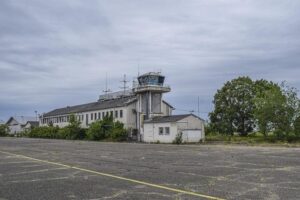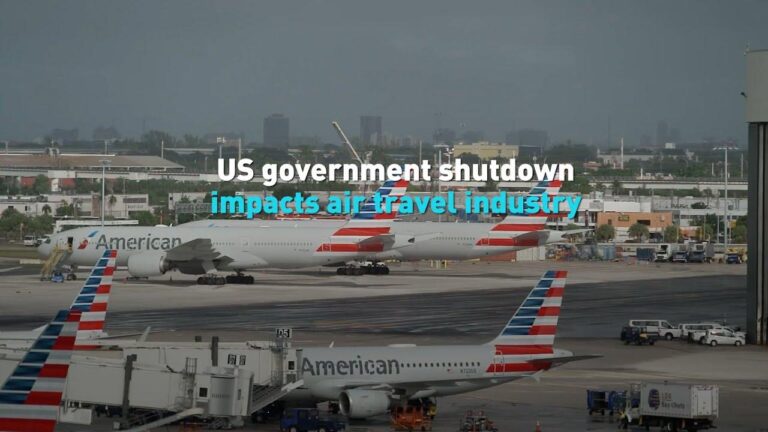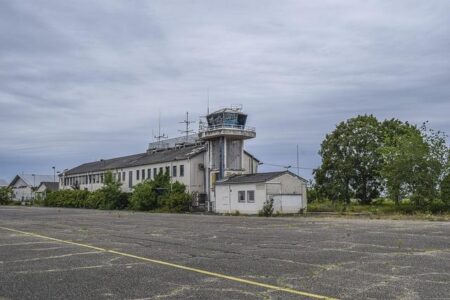Widespread Delays at Major U.S. Airports Amid Ongoing Government Shutdown
Across the United States, air travelers are encountering severe delays and disruptions as the prolonged government shutdown continues to affect airport operations nationwide. Prominent hubs such as Atlanta’s Hartsfield-Jackson, Los Angeles International, and Chicago O’Hare are reporting significant slowdowns due to diminished staffing levels within federal agencies responsible for security screening and air traffic management. Security lines have stretched beyond two hours in some locations, while numerous flights have been either postponed or canceled. The shutdown’s impact extends beyond frontline operations, stalling essential government support functions that maintain airport efficiency.
Moreover, the shutdown has triggered cascading effects on auxiliary airport services, including baggage handling and passenger assistance, intensifying traveler dissatisfaction. Airlines and airport officials are advising passengers to arrive well ahead of their scheduled departure times and to monitor flight updates closely. The primary factors contributing to the current operational challenges include:
- Reduced TSA Workforce – resulting in longer queues and slower security processing.
- Limited Air Traffic Control Personnel – causing flight delays and extended holding patterns.
- Decreased Maintenance and Support Staff – leading to slower baggage handling and facility upkeep.
| Airport | Average Delay (hours) | Flights Canceled |
|---|---|---|
| Hartsfield-Jackson (ATL) | 1.9 | 50 |
| Los Angeles International (LAX) | 2.3 | 42 |
| Chicago O’Hare (ORD) | 1.6 | 33 |
Security and Passenger Services Under Strain, Leading to Lengthy Waits
The sudden halt in government operations has severely impacted passenger services at major airports, resulting in extended wait times and growing traveler frustration. With fewer TSA agents on duty, security checkpoints are overwhelmed, causing passengers to endure longer lines and more rigorous screening procedures. The Transportation Security Administration has been forced to reallocate its limited personnel, prioritizing certain flights and airports, which has led to inconsistent passenger experiences across terminals.
Several key issues are driving these delays:
- Reduced availability of TSA screeners for passenger checks
- Increased reliance on manual inspections due to system limitations
- Longer baggage inspections and enhanced security protocols
- Prolonged processing times for international travelers
Despite contingency plans implemented by airports, the backlog of passengers continues to grow as daily traveler volumes remain high. The table below compares average security wait times before and during the shutdown at select airports:
| Airport | Wait Time Before Shutdown (Minutes) | Current Wait Time (Minutes) |
|---|---|---|
| JFK International | 14 | 48 |
| Los Angeles LAX | 19 | 53 |
| Chicago O’Hare | 17 | 44 |
| Atlanta Hartsfield | 13 | 40 |
Security procedures, which are typically optimized to handle large passenger volumes efficiently, have become bottlenecks under current staffing constraints. Travelers are strongly encouraged to anticipate delays and plan accordingly by arriving earlier than usual. Airlines and airport authorities emphasize the importance of patience and preparedness during this challenging period.
Airlines Confront Operational Hurdles and Communication Gaps
With the government shutdown continuing unabated, airlines operating at major U.S. airports are struggling to adjust schedules and keep passengers informed amid rapidly changing conditions. The shortage of federal personnel managing air traffic control and security screenings has forced carriers to enact emergency protocols, including widespread flight cancellations and rerouting efforts. Communication channels have become overwhelmed, leaving many travelers confused and without timely updates on their itineraries.
Airlines are contending with several critical challenges:
- Sudden flight cancellations with delayed passenger notifications
- Overburdened customer service centers causing slow response times
- Coordination difficulties with airports affected by reduced government staffing
- Rapidly fluctuating air traffic conditions due to understaffed control towers
| Airport | Average Delay | Flights Canceled |
|---|---|---|
| JFK | 78 minutes | 125 |
| LAX | 62 minutes | 100 |
| ORD | 85 minutes | 115 |
Traveler Strategies for Managing Airport Disruptions Amid Shutdown
Passengers navigating the challenges posed by the government shutdown are advised to regularly monitor flight statuses through airline apps and official airport websites to stay informed of any changes. Arriving at the airport significantly earlier than usual is crucial to accommodate longer security lines and reduced staffing. It is also wise to carry printed copies of boarding passes and identification in case of digital system outages.
Adopting a flexible approach can help minimize travel disruptions. Consider the following recommendations:
- Promptly rebook flights when cancellations occur to secure alternative routes.
- Pack essential items in carry-on luggage to avoid complications from delayed or lost checked baggage.
- Communicate early with travel companions and accommodation providers about potential timing changes.
- Enroll in TSA PreCheck or trusted traveler programs once normal operations resume to expedite future security screenings.
| Advice | Advantage |
|---|---|
| Stay updated with airline alerts | Anticipate delays and cancellations promptly |
| Arrive 2-3 hours early | Allow sufficient time for extended security checks |
| Use mobile boarding passes | Speed up processing and reduce contact |
| Keep essentials accessible | Be prepared for unexpected wait times |
Conclusion: Navigating Air Travel Amid Political Gridlock
As the government shutdown endures, millions of air travelers across the nation continue to face mounting delays and operational challenges at key airports. The reduced capacity of federal agencies critical to airport security and air traffic control has strained the entire air travel ecosystem, underscoring the far-reaching consequences of political stalemates on vital infrastructure. Authorities urge passengers to remain vigilant, stay informed, and prepare for extended wait times while efforts to resolve the shutdown proceed. This situation serves as a stark reminder of how governmental impasses can ripple through everyday life, affecting millions of Americans and the broader economy.







